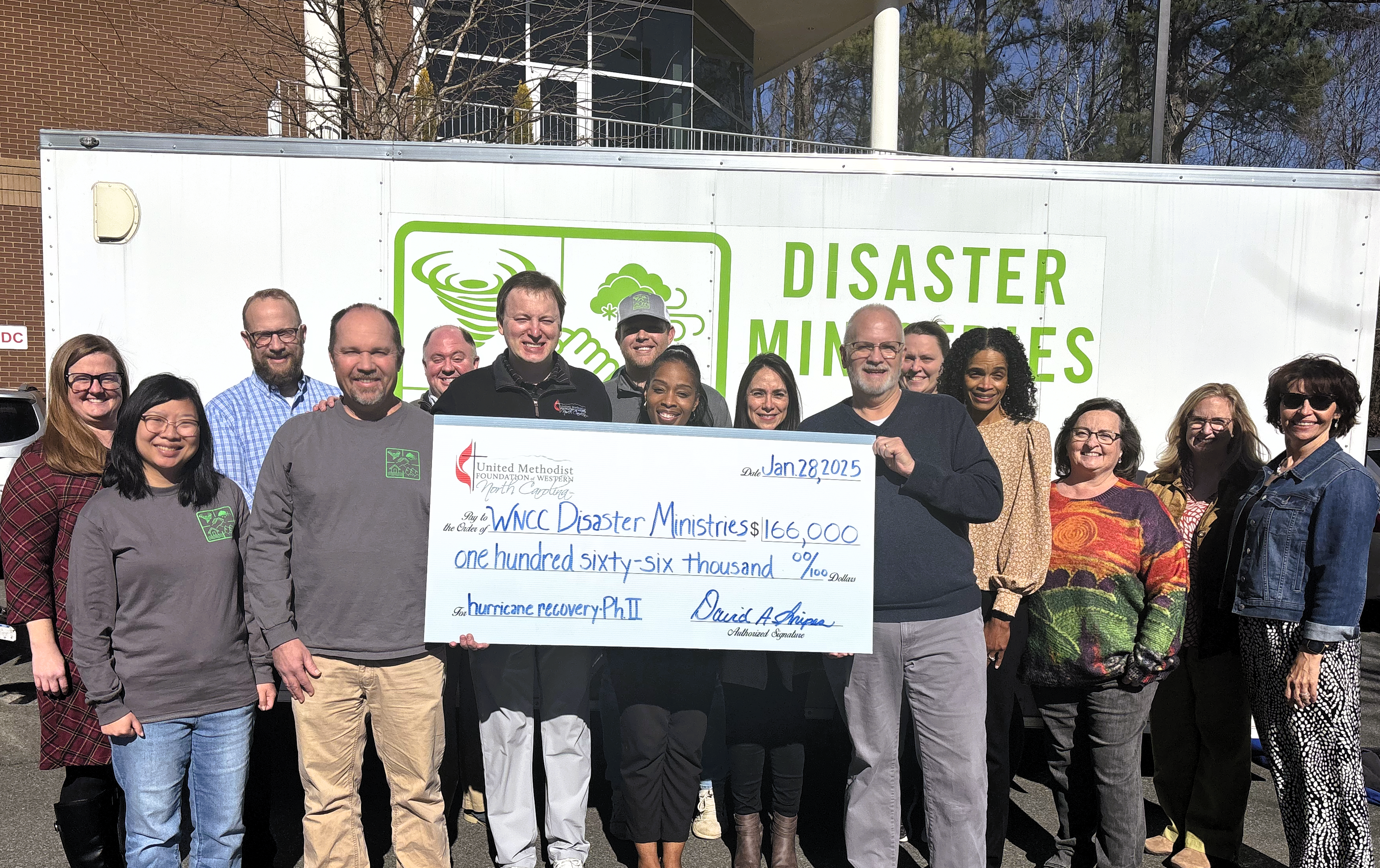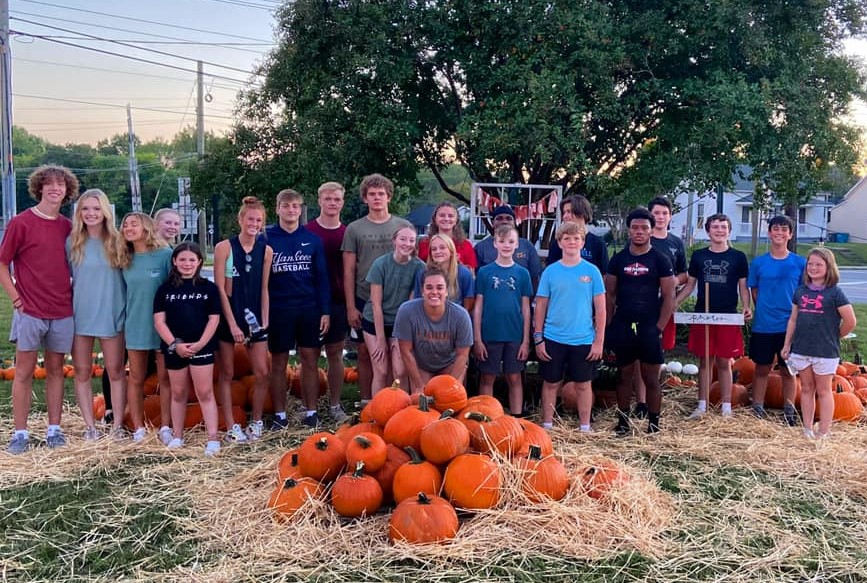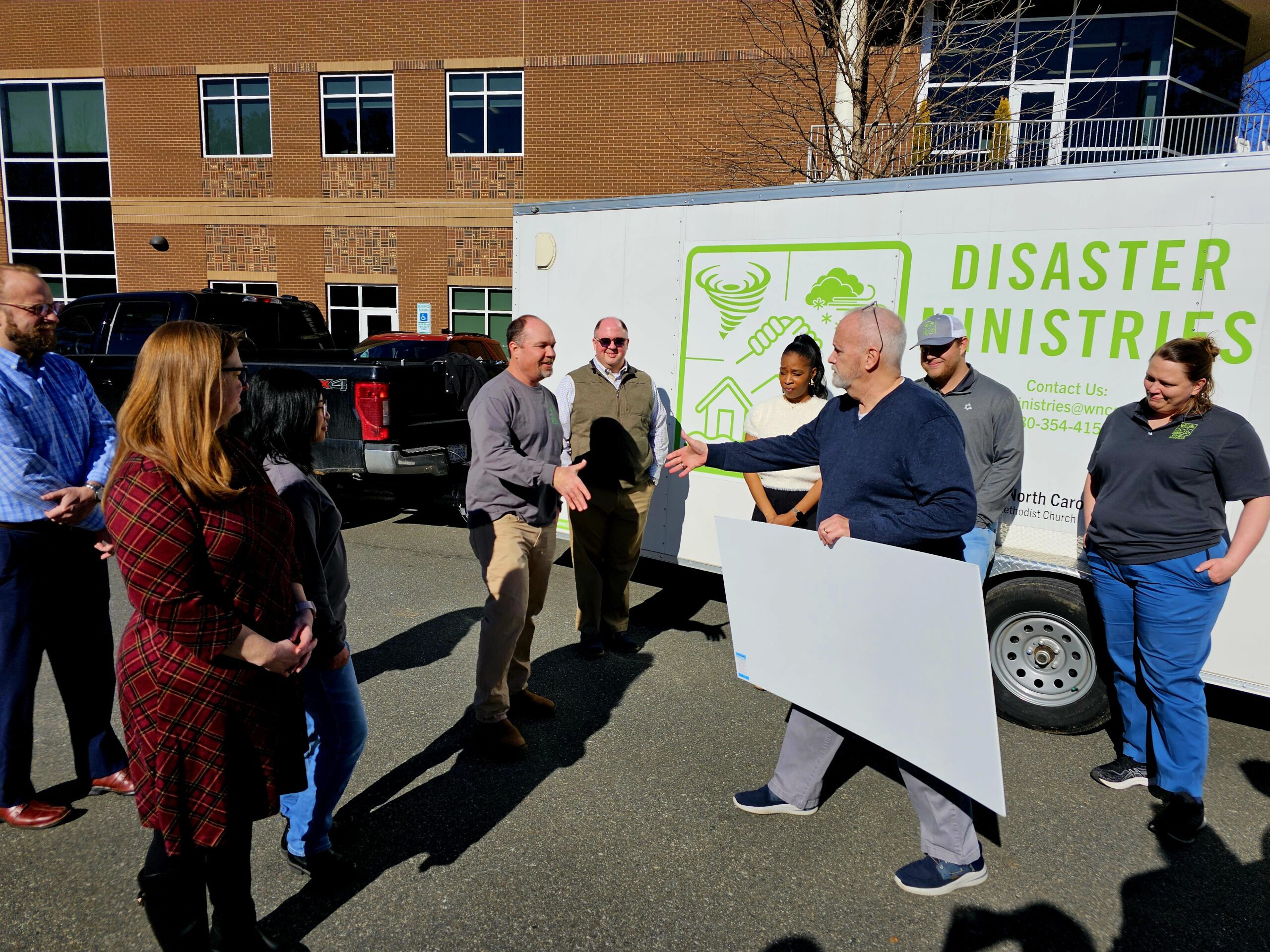
We write to share an update on these efforts. Like others who have faithfully given after Helene, we pray our response brings a measure of hope and healing.
On Jan. 28, the Foundation presented a check for $166,000 to WNCC Disaster Ministries to help purchase propane and carbon dioxide detectors for residents in affected communities. The funds also covered training for a group of WNCC staff and volunteers who recently spent four days at the Southeastern Jurisdiction (SEJ) Disaster Academy in Fruitland Park, Fla.
The distribution came from Foundation reserves and generous contributors such as West Market Street UMC in Greensboro and Park Street UMC in Belmont. Park Street gave 100 percent of proceeds from its annual pumpkin sale, which is pictured below.
“This is what the United Methodist Connection is all about,” said Rev. David Hiatt, the church’s senior pastor. “When our neighbors were hurting, it only made sense for us to do all we could. We want to be sure they know they aren’t in this alone.”
“Many of our members have ties to the areas,” added Janice Hollifield, a lay member of Park Street and co-organizer of the pumpkin patch. “We may be helping to support our own family and friends. Beyond that, it reminds us of God’s call to love our neighbor as ourselves.”
This is all part of a larger commitment. Within weeks of the storm, the Foundation sent $800 checks to 127 churches and ministries in the most affected counties. The immediate, no-strings-attached gifts totaled $101,600.

Needs require multi-faceted response
In the first six weeks after Helene, more than 600 United Methodists signed up for Early Response Team training to serve during the stabilization phase between relief and recovery. By November, the Western North Carolina Conference had hosted 20 teams from across the nation.
Many of our WNCC clergy and ministry professionals have worked tirelessly to bring care, leadership, and hope to their communities. The recovery phase — helping people rebuild and regain self-sufficiency — can last for years, especially after a storm of this magnitude.
“It’s going to be a long haul,” said Al Miller, who serves in the new role of Director of Disaster Ministries for Hurricane Helene.
Spirit of hope and renewal
Henson Chapel UMC, nine miles west of Boone, offers a glimpse into the challenges. Helene left a deluge of floodwater and mud in the church’s basement bathrooms, fellowship hall and kitchen. Dealing with resulting mold and mildew issues was costly – but essential.
The church is a distribution site for Western Watauga Food Outreach, a nonprofit that gives out bags of groceries and serves a free community meal on Thursdays. The area is considered a food desert because residents lack access to fresh food and produce. Six of every 10 children at nearby Bethel Elementary School are enrolled in free or reduced lunch. Many more would qualify but will not apply.
“We would not be able to rebuild if it weren’t for individuals who have contributed so generously,” church members wrote in a note of appreciation.
The Foundation’s 2025 operating budget projects a multi-year commitment toward needs related to Helene. Partners include the Conference’s Office of Recovery and the United Methodist Committee on Relief (UMCOR).
“This support is crucial for our ongoing efforts,” said Brian Mateer, Director of Missional Engagement and Conference Disaster Response Coordinator.
Through God’s grace and the strength of our Connection, we will find the way toward brighter days.
“We are blessed to give back,” said Foundation President David Snipes, “And, hopefully, help bring a spirit of hope and renewal for the future.”

Best wishes to a cherished colleague and friend
As she leaves the Foundation to move closer to family, Susan Cothern offers a word of thanks.
Board gives thanks for leadership, growth and fruitful ministry
There was a special tribute for outgoing board chair Anne Martin, whose steadying presence proved invaluable as the Foundation navigated post-pandemic recovery, disaffiliation and accompanying challenges.
Disciplined approach protects, grows your investment dollars
We are committed to maintaining discipline, balance, and, most importantly, a long-term focus in the decisions we make on your behalf.